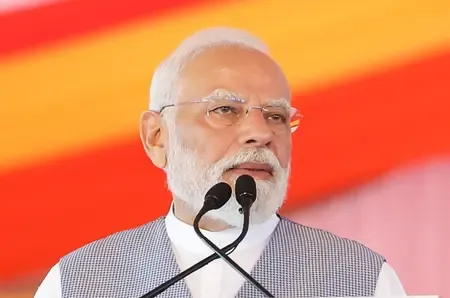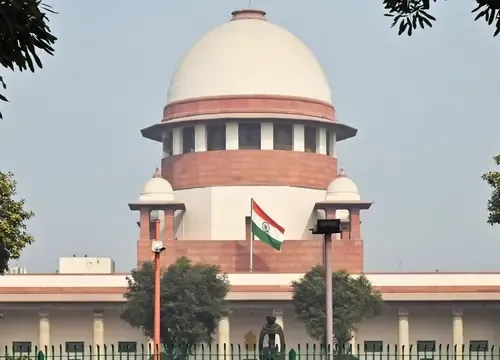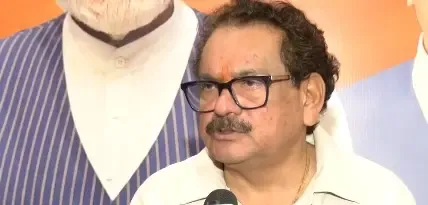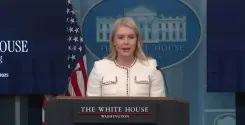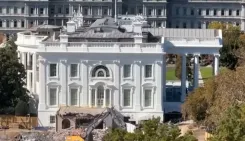Will the Maha government ban imported Chinese plastic flowers?
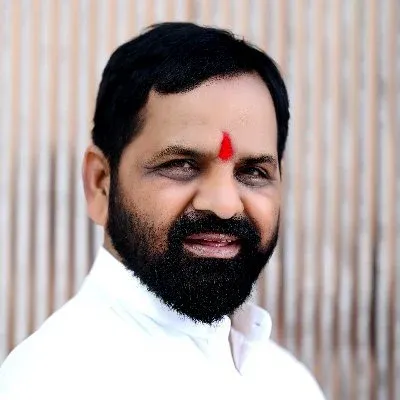
Synopsis
Key Takeaways
- Maharashtra government plans to ban imported plastic flowers.
- Decision stems from farmers' protests regarding harmful dyes.
- Assembly discussions led to a consensus for the ban.
- Water supply projects under Jal Jeevan Mission will be completed statewide.
- Commitment to environmental sustainability with solar energy initiatives.
Mumbai, July 16 (NationPress) The Horticulture Minister of Maharashtra, Bharat Gogawale, announced in the Assembly that a significant decision regarding the prohibition of Chinese-imported plastic flowers will be revealed this week.
During the session, MLA Mahesh Shinde brought up the farmers' protests concerning this matter through a point of order. In response, Gogawale mentioned that a meeting was held with the Chief Minister on Tuesday, resulting in a consensus to enforce a lasting ban on these plastic flowers. He assured that the announcement would occur within the week.
Just last week, Shinde raised concerns in the Assembly about the detrimental effects of harmful dyes utilized in these plastic flowers, highlighting that natural flower cultivators are facing hardships due to their presence.
As representatives from all parties voiced their support for this ban, Gogawale confirmed that he would proceed with the prohibition of plastic flowers. Following this, a meeting took place with the Chief Minister to finalize the decision.
In a related matter, Minister of Water Supply, Gulabrao Patil, announced in the Assembly that the water supply projects under the 'Jal Jeevan Mission' will be completed across the state.
“Prime Minister Narendra Modi envisions providing tap water to every household. Maharashtra is committed to realizing this dream. All incomplete water supply initiatives in the state, including those needing revised budgets, will be accomplished,” he stated during a half-hour discussion.
Member Sudhir Mungantiwar initiated this discussion, where other members also participated, including Nana Patole, Abhijit Patil, Babaji Kale, Vishwajit Kadam, Narayan Kuche, Kishore Patil, Hemant Ogle, Amit Zhanak, Kisan Wankhede, and Sulabha Gaikwad.
Patil emphasized that funds allocated to the Water Supply Department would be equitably distributed among districts based on their requirements, ensuring no financial constraints hinder the completion of water supply schemes.
The resources received will be allocated appropriately, and any outstanding payments will be addressed. If necessary, revisions to the detailed project report will be accepted.
Meetings will be convened in Chandrapur, Bhandara, and other districts as needed to assess the status of these projects. Additionally, a physical inspection tour will be undertaken. All water supply projects in the state are transitioning to solar energy.
“The survey for the Marathwada Water Grid Project has been successfully completed. Work on this project will commence this year with financial support from the World Bank. The Jal Jeevan Mission aims to provide 55 liters of water per capita, and this will be included in the revised budget for road repairs required for the project,” Minister Patil added.

